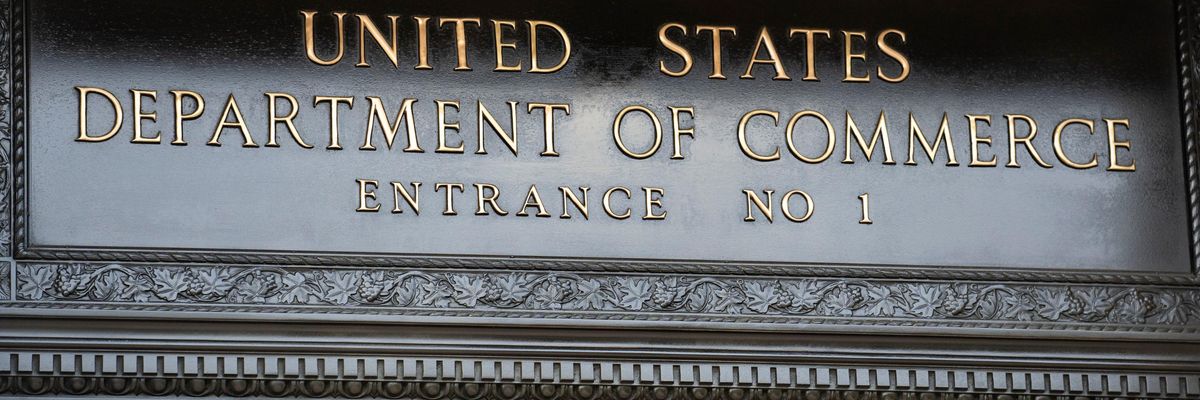Did the Biden officials know what they were doing when they announced a broad expansion of export controls on China? China is the world's second-largest economy, which is intricately intertwined with the economy of the U.S. and other nations. This is mainly due to U.S. multinational companies exporting huge slices of our manufacturing economy to China for its cheap labor.
Both U.S. political parties have chosen a militant path without an exit strategy--one that must please Lockheed Martin and the rest of the military-industrial complex.
What is the White House and the Department of Commerce thinking? China is not Venezuela nor is it Russia, a weak and dependent economy with a GDP smaller than Italy. Do these brazen Bidenites realize the consequences of a grand list of technologies and knowhow being barred from China?
As the dominant imperial world power, the U.S. is struggling to understand how to deal with an aggressive rising power like China building spheres of influence around the world through exports, loans, development contracts, and technical assistance. It's okay that we have military bases in over 100 countries whose leaders know the U.S. as the premier overthrower of elected governments with policies displeasing to Washington and Wall Street.
As a result, the Bidenites are unleashing export controls, arrived at through administrative secrecy, that will surely invite black markets, high-tech smuggling, and retaliation to make these controls a nightmare to enforce.
Provoking China to play its own cards is not smart. China, thanks to the greed of coddled and subsidized U.S. drug companies, produce much of our pharmaceuticals. These companies have left America, for example, with no production domestically of antibiotics--certainly a national security priority!
China possesses "rare earth" minerals and produces technology crucial to our own defense and high-tech industries. Its government allows U.S. factories to be built in China on the condition of a flow of latest "technology transfers." Ask General Motors.
How are export controls--based on asserted national security grounds--going to work, other than to accelerate a new arms race? "We need to retain technological overmatch" declared Commerce Secretary Gina Raimondo, adding that export controls "are at the red hot center of how we best protect our democracies." Tell that to the mass victims of the next round of viruses from China due to our minuscule weak public health programs and early detection systems, while we spend more than 2 1/2 times as much as China on our military budget having had a huge head start in past years.
The New York Times reports that U.S. officials also don't like China's deep surveillance of its people. It is as if surveillance capitalism (See, The Age of Surveillance Capitalism: The Fight for a Human Future at the New Frontier of Power by Professor Shoshana Zuboff) and the NSA's dragnet violations of the 4th amendment are chump change.
China is already in the front ranks of artificial intelligence, biotechnology, and quantum computing. To declare a cold war on China's access to technology, as a Commerce Department official said, "that advance the country's scientific advancement" including on foreign companies that use some U.S. products, is ludicrous. Aren't they aware of the traditional open exchange between scientists all over the world, not to mention China's own allies or collaborators in this regard?
What is also well known, but not uppermost in people's minds, is that China, Russia, and the U.S. have embedded malware in each other's cyber worlds that if triggered could cause catastrophe. The concern about China's tens of billions of dollars invested in U.S. Treasury bonds should also be an issue for Mr. Biden.
Another calculation underweighted is the quiet opposition to export controls by U.S. companies that salivate over the present and future profits with Chinese trade--Apple CEO Tim Cook (who, by the way, makes $833 a minute on a 40-hour week) got a special waiver treatment from Trump, continued by Biden, for importing tens of billions of dollars annually of iPhones and computers from its Chinese contractors without tariffs.
This is another way of noting that export controls invite both raw corruption and special lobbying for waivers. They were tried by the U.S. against the old USSR, which developed elaborate circumventions.
So here we go again. Of course, certain lethal products need to be embargoed by all countries protective of their people. The U.S is expanding its so-called "entity list" cutting off hundreds of foreign companies and groups from certain U.S. technologies unless U.S. suppliers get licenses to sell goods to them. Don't these government officials know that blacklisted companies can mutate through other corporations chartered in tax havens or dictatorships abroad?
U.S. belligerence will be met with more Chinese belligerence and vice versa as the perils and risk increase.
William Hartung (See, Center for International Policy) points out--a far brighter future would come from intense U.S. and China cooperation on the climate crises, averting pandemics, ocean preservation, and international arms accords including cybersecurity. Wage peace and pursue mutual self-interest as if our children and grandchildren matter.
Where is our Department of Peace, once advanced by Congressman Jim McGovern (D-MA) and former Congressman Dennis Kucinich (D-OH), when we need it?
Relations between major nations are shaped by momentum in one direction or another. Both U.S. political parties have chosen a militant path without an exit strategy--one that must please Lockheed Martin and the rest of the military-industrial complex.
The forces for muscular peace and cooperation must show there is an alternative path to secure the common interests of the two nations. That's called robust diplomacy in this era of recurring pandemics, expanding ransomware, bloated military budgets, and interconnected economies.



